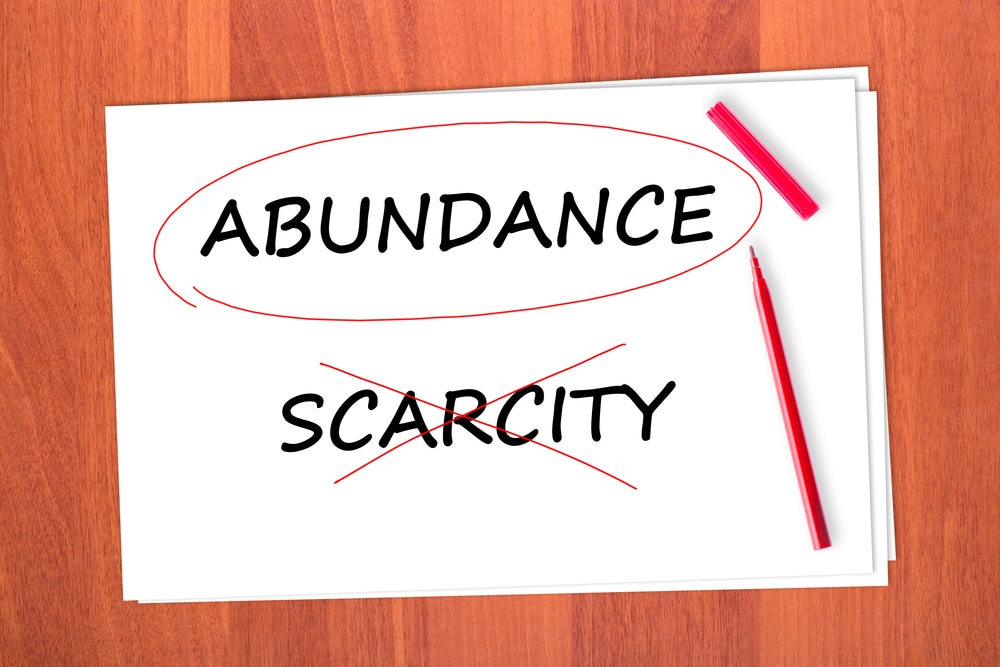Over the years I have encountered numerous myths and misconceptions about divorce-related grief, the most common of which is the notion that it is linear, logical and finite. We expect grief to peak immediately after separation, then slowly subside until, perhaps a few months later, we are mostly pain-free. If only that were true! Separation and divorce shakes our snow globe, causing its vulnerable particles to erratically float around with no end in sight. So it's no wonder that any human being would want those particles to settle quickly, in an orderly, predictable way. Unmet grief expectations are frequently construed as failure. We don't feel the way we think we should, so we conclude that we are not "doing it right." This adds unnecessary suffering to pain. We can create a more accepting relationship with ourselves and our grief when we understand its true nature. To that end, I have created the following list of often-experienced-but-rarely-discussed, long-term emotional truths about divorce:
If you’re still reading this, I imagine you may wondering what can be done to help mitigate the pain of these truths. One of the most important things we can do, post-divorce, is clarify our values (e.g., family, commitment to service, personal accountability, kindness toward others, etc.) and commit to living those values. This sounds simple. But it is not always easy. Furthermore, habits of intentional living take time--sometimes years--to develop. Now is the time to be kind and patient with yourself. Keep in mind that few roads are perfectly smooth or straight. If you find yourself straying from your values, recommit to them. Repeat this process as many times as needed. Finally, keep in mind that the presence of difficult emotion does not signify the absence of coping. All emotions, even the unpleasant ones, signify our humanity. Feelings are a normal, natural part of any living finish. Dr. Jill Gross is a licensed psychologist, therapist, and counselor. She offers grief therapy, divorce consultation, co-parenting support, and other counseling services in the Phinney Greenwood area of Seattle, WA. If you would like help coping with the long-term emotional impact of divorce, follow the link below to schedule a free consultation.
2 Comments
The loss of a spouse or soul mate can generate so many questions. In the acute fog of grief, each moment is its own unique world--changing all the time. We wonder about the basics of survival. How will we get through each day? Will we ever feel 'normal' again? As time passes, the content of our questions shifts toward a greater curiosity about what the future holds. We ask who will hold us again or how we will know the time is right to accept new love into our hearts. What follows is a letter from one reader who, five years after losing her beloved soul mate, is grappling with some of these questions and the feelings that go with them. I hope this letter can be of use to any of you who may be wrestling with how to move forward after losing a spouse or partner. Feel free to share your sentiments and questions in the comments section below. I look forward to hearing from you! Dear Dr. Jill, My husband of twenty-five, amazing, fun-filled years died suddenly of an aneurism about five years ago. I’m not exaggerating when I say John was everything to me. He was my lover, my best friend, my traveling companion. We had two beautiful children. We were inseparable. When John died, my life came to a screeching halt. I can barely remember the first year or two after my soul mate's death. There were days when I couldn’t get out of bed or see anyone. I had trouble eating, showering—even parenting my then teenaged children. There were times when the pain was so bad I thought it would kill me. And there were moments when I actually wanted it to, just so John and I could be together. With the support of my family, friends, and church, I slowly crawled out of the dark hole I was in. I started eating, showering, attending church services, and reengaging with my friends and family. Life is still hard without John but I’m managing as well as can be expected. About six months ago, a fellow church member (I’ll call him Chuck) started asking me to do things. A dinner here. A movie there. I’ve known Chuck since before John died, so I assumed he was just being friendly. However, a few weeks ago, Chuck told me he was interested in something more than friendship. At first, I panicked and told him I was not ready to date. I made a few awkward jokes and then quickly changed the subject. I figured all would return to normal and that would be that. Since that night, I cannot stop thinking about Chuck. Each time I do, I instantly think about John and then I feel guilty. I try to push the thoughts about Chuck out of my head. I haven’t been able to do it. It’s been five years since his death and, yet, I feel like I'm being disloyal to John. I’m worried that my children and my church community will judge me if I start dating again. And what if things don’t work out with Chuck? What then? I’ve relied so heavily upon my church since John died, I’m afraid that a relationship with Chuck might jeopardize my place in the community I've come to rely on. I’m so confused. If I have all of these questions, does that mean that I’m not ready to date? Or does it mean that Chuck is not the right person to date? I was with John for so long and things were so easy. I am not sure I know what is normal and what is a sign that I’m making a bad choice. Any advice you have is appreciated. Signed, When To Say When Dear When, If my arms were long enough, I would reach out and hug you right now! The depth of your love and commitment to John came through in your words. I can only imagine how difficult it was for you to learn how to move forward without him. What also came through in your letter was the transformative power of grief. Though it wasn’t easy, after the initial “grief fog” lifted, you leaned into your support system and created a new normal for yourself. This takes courage and tenacity. Thus, it’s no surprise that any man would feel drawn to your strength! The questions you are asking suggest the presence of both fear and its most reliable sidekick, self-doubt. These feelings make sense. The last time your heart was open, it was devastated by loss. Of course you would feel unnerved as the door to your heart slowly creaks open again. Fear, self-doubt, and romantic attraction do not have to spell disaster or disloyalty. They can instead signify the awakening of parts of yourself that have been dormant since John’s death. Aliveness, in whatever form it presents itself, is always a good thing! It is not necessary (nor is it possible) to know how things will turn out with Chuck. In fact, the outcome may matter less than you think. What's more important is the conscious choice to turn toward your own vitality. When granted permission to do so, the heart will naturally make space for more love. John will always be a unique and integral chapter of your love story. Neither his death nor your choice to seek joy with a new partner will change or undo that. In closing, I would like answer your questions with two of my own: What if there were no mistakes? What your grief gave you everything you need to handle this situation? Proceeding as if both of these things are true will go a long way toward figuring out the next best step. Good luck! Yours In Health, Dr. Jill Dr. Jill Gross is a licensed psychologist and grief counselor in the Phinney - Greenwood area of North Seattle. If you are struggling with the death of a spouse, help is just a click away. Schedule a free consultation to see how grief therapy can help you rediscover your own aliveness! Valentine's Day. Some dread it. Some love it. Some view it as just another day. For those who've recently lost a partner or spouse, Valentine's Day can be especially rough. Today's post is about grief. May it reach the hearts of those who are grieving, today and every day. As a grief therapist and counselor, friends and family sometimes ask, “Does it burn you out to sit, all day, listening to sad stories, told by sad people?” Clients make similar inquiries. They wonder if their grief, like a virus, is contagious. Actually, sitting with grieving people has the opposite effect. Just like an expectant mother’s contractions, grief is pain with purpose. Though people are sad, angry or scared when they are grieving, typically, they are also learning something significant--about themselves, their relationships, their families, their friends. What’s more, grief brings with it an indescribable openness that, if handled appropriately, fosters deeper connections, both inside and outside the therapy room. What could be more energizing than that? Grief is a normal, natural side effect of love and loss. So why are so many of us quick to judge or criticize ourselves when we are grieving? In an age where we are one click, tap, or swipe away from just about anything, it’s easy to assume we are in pain because are doing too much of one thing, not enough of another, and/or because we haven't downloaded the right app yet. This assumption is untrue. In fact, leaning into grief helps us accept it as a naturally occurring process that needn’t be controlled. One of the most frequent questions encountered in my therapy practice after a loved one dies is, “How long will this last?” or “When will I feel normal again?” To this, I usually answer, “That depends. How long will your loved one be dead?” Sure, this answer makes me guilty of the age-old therapist / counselor stereotype of answering a question with a question. But it also validates what clients already know: because their love is life-long, so too will be their grief. When clients hear this, the relief in the room is palpable. Dr. Elizabeth Kubler-Ross once thought of grief as a circumscribed process consisting of five stages: denial, anger, bargaining, depression and, finally, acceptance. Experts now believe that grief is a fluid, non-linear process. The “stages” of grief are more like “areas”--rooms that we wander in and out of, depending on our circumstances (e.g., anniversaries, birthdays, holidays, etc.). In fact, we can feel all of the areas of grief, sometimes in the same day, at the same time, and in no particular order. Though there is no magic pill to eradicate or hasten grief, here are six things that can help facilitate healing after loss:
Moving forward with life after death sounds simple. But it is far from easy. If you are feeling stuck or frustrated by grief, it may be wise to seek assistance from a qualified grief therapist or counselor. Feel free to get in touch for a free consultation to see if therapy or counseling is right for you. You can also find valuable grief-related resources, including counselors and groups in your area, here. Remember, grief is how the body, mind and spirit heal after loss. It changes us. It soften our edges. It opens our hearts. Surrender to grief and let it's powerful current carry you wherever you are meant to go. Dr. Jill Gross is a licensed psychologist, therapist, and counselor. She offers grief therapy, divorce support, and other counseling services in the Phinney Greenwood area of Seattle, WA. If you've recently lost a loved one and want to feel better, schedule a free consultation to find out how grief counseling can help you!
People seek counseling or therapy to change what no longer works: careers, lifestyles, friendships, marriages. They’ve labored for months, years, sometimes even decades to make their jobs more appealing, their spouses more affectionate, their families more considerate. Exhausted from the fight, clients come to therapy hoping their therapist or counselor will join the effort. And we do. Just not always in ways our clients expect.
What brings people in the door is frequently not what keeps them there. What is initially described as a problem is usually the beginning of a solution. Jason*, a twenty-three-year-old, second-year medical student, was referred for psychotherapy by a psychiatrist from whom he originally sought antidepressant medication. He didn’t exactly sit on my sofa. He slammed himself against the back cushion and slid, pancake-style, until he was practically laying down and sitting up at the same time. When asked what brought him to therapy, he could barely lift his head to answer. “Depression” was the most he could muster. I probed further. From the time he was old enough to walk, talk, and cut his own steak, Jason was told he was destined to be a physician. For the entirety of his youth, his parents, both surgeons, conveyed to Jason that he had two post-college options: medical school or medical school. Jason was a gifted student to whom science and math came easily. So, after graduating from a prestigious college with a Bachelor’s degree in biology, Jason applied to medical school and was accepted. Off he went. There was only one tiny problem with this plan: Jason hated medicine. A classically-trained pianist, his true love was music. He wanted to play professionally. Because Jason knew his parents would never approve of this choice, he buried his love of music and forged ahead with the mandate to become a doctor. Though Jason’s presenting concern was depression, with time, it became clear that depression was merely a topical symptom: the real issue was Jason’s relationship with approval. He needed approval so desperately he was willing to pay for it with his life--literally. As he whiled the hours becoming more of the person his parents wanted him to be, he was slowly becoming less and less himself. By the time I saw him, he was merely a shell, his own narrative virtually indistinguishable from that of his parents. It was a long and difficult road but Jason eventually found his voice. As he did, the depression lifted. He mustered the courage to put his medical studies on hold and pursue music. His parents weren’t thrilled but, to his surprise, they hung in there. What’s more, Jason decided, on his own, that he would move in with roommates to lower his living expenses and support himself by teaching piano lessons. It wasn’t a king’s ransom but it was a living. At twenty-three, Jason was doing the unthinkable: he was becoming an adult. Jason clung to a medical career to protect both himself and his parents from the dilemma of having to choose their real-live son over their idealized version of him. The most difficult part of Jason’s journey was not abandoning a career he never wanted to begin with, but trusting that he was strong enough to withstand the discomfort of telling an authentic but unpopular truth. In so doing, he untethered himself from the core belief that his well being was contingent upon the approval of those he cared about. With the need for external validation no longer powering the engine, Jason was not only surviving; he was actually thriving! Jason’s story is not unique. For many of us, fear manifests as immutable obstacles we tell ourselves we cannot live with or without. We cannot leave the job that is giving us bleeding ulcers because we need the money. We cannot ask for what we want because our spouses will leave us. We couldn't possibly sell the house that is bankrupting us. Over and over, we plead with life to change in one breath while weaving stories that are designed to keep it the same in the other. It is not the obstacles themselves that keep us stuck, it is our relationship with the meaning we have imbued those obstacles with. Most obstacles serve a protective function. They shield us from our deepest fears and the dependencies that maintain them. They keep us at a healthy distance from what we are not yet ready to know or experience. We struggle to find a way out of suffering not because we don't have answers but because we haven't yet found the right questions. Had Jason and I focused solely on eradicating his depression, we would not have seen that the real issue was a dependency that was preventing him from knowing his own strength. We cannot succeed at removing the barriers to change unless we first understand and acknowledge their benevolent purpose. If you're on the cusp of making an important change and something appears to be holding you back, remember that you have chosen this obstacle for a reason. Try not to blame yourself here--there is no sense in heaping suffering on top of pain. Reminding yourself that you are the architect of your obstacles can be a way of offering hope that, when you are ready, you will draw up a different blueprint! How have you overcome obstacles in your life? Tell us about it in the comments section below. *Names and identifying information have been altered to protect patient confidentiality. Dr. Jill Gross is a licensed psychologist, therapist, and counselor. She offers grief therapy, divorce support, and other counseling services in the Phinney Greenwood area of Seattle, WA. Are obstacles getting in the way of you having the life you deserve?
Something strange is happening in Seattle. Mother nature appears to have gotten the memo, albeit a month later than the rest of the country, that Spring has arrived.
As I’m writing this, it’s a balmy 74 degrees outside, the gardens are in full bloom. Like earthworms after a good soaking, Seattleites are creeping out in droves from their bookstores and coffee shops to pay tribute to the one thing we all yearn for but cannot control: the sun. Closet mainstays of Gortex and fleece have been temporarily exchanged for tank tops and shorts. The Greenlake lawn is smattered with blankets and picnic baskets. Translucent limbs gently tip toward the golden orb that forsakes them for two-thirds of the year. Fellow park goers pass one another with chins held a little higher, smiles a little wider, freely spouting weather-related pleasantries, exchanging gleeful, knowing glances. It is as if everyone in the city is holding the same winning lottery ticket. While out walking today, I started thinking about why Seattleites go nuts when the weather is nice. A story came to mind about a man who immigrated to the United States from a poor, rural part of India. Upon his first trip to an American grocery store, the man fell to his knees and wept. When his companion asked why the man was crying, he replied, “Such abundance! How is one to appreciate anything?” Indeed, the first sunny day in Seattle nicely exemplifies how scarcity can beget tremendous gratitude. The city's residents savor every moment of sunshine because we know it won’t be long before it disappears. We resent the rain, yet we also know it is the prerequisite for the flowers and fruit trees that dazzle us come springtime. Life is the same way. When we are experiencing a long stretch of suffering or scarcity for which there is no scheduled ending, it is easy to get mired in dark emotions. Every human emotion comes with its own, unique script. Most commonly, when we are suffering, we feel hopeless which, for most of us, sounds like “I am trapped in a hole that is too steep to climb. I will be here forever.” These thoughts are pretty convincing. They seem real, but they are not true. Hopelessness is just like any other emotion, free to come and go, once fully permitted to exist. It is normal to resist suffering out of fear of being carried away by its undertow. In lieu of curious examination of our feelings, we often shame or judge ourselves for having them. Allowing space for dark emotions is not synonymous with succumbing to them. The opposite is true. The more we resist what we are feeling, the more likely our feelings will manifest in ways that don’t serve us (e.g., explosive rage, drinking or drug use, shopping, gambling, etc). In other words, we are fated to act out our feelings until we are ready to learn from them. Life is fraught with suffering. We cannot sidestep it altogether; we must go through it. Here are a few things to keep in mind as you inch your way forward:
Sometimes the lessons we are meant to learn from suffering require additional resources, such as a licensed psychologist, therapist, or counselor. If everything you’ve tried on your own doesn’t seem to be working for you, widen your circle to include a trusted professional. Your mental health is worth the investment! Have you found an effective way out of suffering? Tell us all about it in the comments section below! Dr. Jill Gross is a licensed psychologist, therapist, and counselor. She offers grief therapy, divorce support, and other counseling services in the Phinney Greenwood area of Seattle, WA. Scarcity got you down? Schedule a free consultation to find out how therapy or counseling can help you lead the life of abundance you deserve!
A friend and I were chatting the other day about relationships. After a season of self-prescribed abstinence from the online dating community, this friend (a bright, vibrant forty-something) decided to jump back in the game.
My comrade had recently met an attractive individual with similar interests, goals, and values. She had assumed, were this to happen, that she would be awash with positive emotion. She assumed incorrectly. Instead of bunnies, rainbows, and Oprah moments, my dear friend was wracking her brain for the myriad of ways something could go wrong in the relationship. Perhaps her date would see aspects of her life that are still under construction. Perhaps her affection for this prospective partner would be unreciprocated. Perhaps the whole thing would crash to the earth in a magnificent fireball. In other words, the very thing my friend thought would fulfill her was now the source of considerable discomfort. My friend’s experience is actually quite common. On the verge of accomplishing our goals, it is common for many of us to feel restless or agitated. Why does this happen? The answer is somewhat complex. Longing is an unconscious manifestation of scarcity, the pervasive belief that we are not enough and/or that we do not have enough. Scarcity is fueled by fear and self-doubt. These feelings come with a dialogue that usually begins with “what if” and ends in loss or catastrophe. These stories can feel so real sometimes, we start responding to them as if they are true. They are not. They are merely representations of emotions that are meant to come and go. When we are anxious or fearful, our bodies and brains are compelled to seek—sometimes obsessively—for the people, places, or things we think will deliver us from scarcity. We are seduced by the notion that the perfect partner, job, house, will be our one-way ticket out of painful feelings. The greater our fear, the more urgently we seek to quell it. The wiser mind knows this is a fool’s errand, but fear is an irresistible salesman. Seduced by the idea that deliverance is just one person, place, or thing away, we become consumed by thoughts of the future. In so doing, lose touch with what we are feeling in the present moment. I like to call this “the seeking trance.” When we find what we are looking for, the trance is broken, our love affair with “someday” abruptly ends, we are catapulted into the present moment, and the feelings we were attempting to avoid come rushing into consciousness. Suddenly, the object of our craving becomes someone or something we don’t trust. Online dating can be a sticky wicket for precisely this reason. Each profile is carefully crafted by an individual who has his or her own unique relationship with fear and scarcity. The result is a collective mass of fear-based energy that manifests in unanswered messages by individuals who proclaimed interest, promising first dates who mysteriously disappear, salacious electronic threads that never yield an in-person meeting. (Sidebar: no wonder my friend was feeling overwhelmed by fear—online dating is a veritable roller coaster of hope and disappointment!) The next time you sense urgency in the absence emergency, this is a cue to pause and inquire. Ask yourself what you are afraid of. When we give a voice to fear, we deflate its power. Name your fear(s) out loud. If a child experiencing the same fear approached you for reassurance, how would you respond? Would you judge or criticize this child or would you surround him or her with loving grace? I suspect you would do the latter, so offer this gift to yourself. Repeat this process as often as needed. Remember that fear and desire are opposite sides of the same continuum. To move from one end, we must lovingly attend to the other. When we really listen to our fear, when we respond to self-doubt with loving kindness, we inch closer to desire. Just as fear begets scarcity, desire beget abundance. When we act from a fearful place, our energetic field constricts, practically guaranteeing we will not find what we are seeking. When we act from a place of authentic desire, we make room for the things want to find us and, when they do, we are more likely to value them. Dr. Jill Gross is a licensed psychologist, therapist, and counselor. She offers grief therapy, divorce support, dating consultation and other counseling services in the Phinney Greenwood area of Seattle, WA. Want to have a richer, more satisfying online dating experience? Schedule a free consultation now!
In Part One of this series, we explored why people lie and the impact of dishonesty on relationships. This week, we will endeavor to answer the two most common questions asked of therapists and counselors by individuals and couples whose lives have been shattered by betrayal: Can the relationship be rebuilt and how long will it take?
So little of therapy or counseling is governed by hard-and-fast rules. This can be frustrating for clients desperately seeking clarity after being hoodwinked by someone they loved and trusted. Typically those who have betrayed their partners are eager to bury the hatchet (to assuage their guilt or shame) while the betrayed need time for the pain of its blow to subside. Reparability is contingent upon the following factors:
Trust is regained when actions and words align over time. Partners can say they want to repair a relationship but, if they are unwilling to do what is needed, these words are meaningless. Betrayers must display a solid track record of being where they said they would be, when they said they would be there, doing what they said they would be doing with whom they said they would be doing it. "Deposits" in the trust account must be made repeatedly until the balance is significant enough to offset the recent withdrawal. Some couples view betrayal as an opportunity to form a stronger, more satisfying union. Others see deception as the harbinger of an ending. I once worked with a young woman whose husband had a lengthy affair with a female colleague. Just months earlier, the client discovered her husband had been sending inappropriate texts to other women. After a year of obsessive thoughts, frequent checking of her husband's phone, and barely-contained urges to follow him every time he left the house, the client realized that remaining in the marriage was costing her dignity. This was ultimately too high a price to pay so she left the marriage. As the healing process unfolds, both the deceiver and the deceived must ask, based on what they know to be true about themselves, whether the pain of rebuilding is preferable to the pain of leaving. As this young woman's story suggests, we must know ourselves well enough to be honest about the answer. How long does healing take? For those who choose to rebuild, repair time depends on the severity of the wound and the preexisting level of trust between partners. Those who trust easily tend to rebound faster than those who do not. It can take one to two years, sometimes longer, for a betrayal to fade into the backdrop. During this time, it is helpful for couples to generate new, positive memories together. This is an excellent time to explore new hobbies together, take extended vacations, learn new skills, etc. Couples can also opt to renew marriage vows or create other rituals to signify new beginnings. It is easier to leave the past in the rear view mirror when we are focused on the road ahead. Painful though it may be, deception is always a catalyst for healing and growth. We only blow up our lives when part of us is yearning to refashion the pieces. Whether we are the deceiver or the deceived, it is important to remember that every betrayal draws our attention to what can no longer be ignored. Some truths are incredibly painful to confront, particularly in the beginning, but we are usually better off for doing so. If you are currently struggling with the aftermath of deception, consider getting help from a licensed psychologist, counselor, or therapist. Whether you choose to seek therapy or go it alone, remember that people can and do heal from betrayal. If you are willing to keep your eyes and heart open, you can be one of them! We have so much to teach and learn from each other. Have you survived betrayal? Did you learn something valuable from it? Are you still figuring it out? Feel free to discuss your experience in the comments section below. Dr. Jill Gross is a licensed psychologist, therapist, and counselor. She offers grief therapy, divorce support, and other counseling services in the Phinney Greenwood area of Seattle, WA. Has your relationship been torn apart by betrayal? Schedule a free consultation to see how couples counseling or individual counseling can get you on the road to recovery!
One morning, not long ago, I overheard a conversation between the host of NPR's "Morning Edition" and some distinguished law professor from one prestigious university or another—you know the drill.
The two were bantering back and forth about the meaning of the word "truth." Up until now, the word has always been understood to mean any thing or event that actually happened. Apparently, truth's ratings have been sagging; Donald Trump wants to give the word a sorely-needed makeover. In the 2003 movie "Something's Gotta Give," Harry (played by Jack Nicholson) and his love interest, Erica (played by Diane Keaton), are struggling to create a meaningful connection with one another. Harry, a long-time womanizer with questionable integrity, explains that he has never lied to Erica. Instead, he has always told her "some version of the truth." In response, Erica snaps back, "The truth does not have versions!” Indeed, until about a month ago, it did not. If The Administration has its way with us, the definition of "truth" will stretch to include opinions or ideas that, when emphatically stated over and over again, are accepted as fact, regardless of their veracity. If the public buys this new-and-improved rendition of truth, as a psychotherapist, I cannot help but wonder about the impact this will have on our intimate relationships. I am often enlisted to provide individual and couples counseling for those whose lives have been shattered by dishonesty. People lie or keep secrets about all sorts of things: history, fidelity, spending, addictive behavior and, in extreme cases, even their identities. Whether big or small, I have found all lies have one thing in common: they forge distance between ourselves and our intimates. A lie is a carefully built wall that neither we nor others can scale. The basis of meaningful connection is shared reality. If I see a dog and you see a fish, any conversation we have about this animal will be meaningless. A lie renders impossible the shared experience upon which trust and intimacy are predicated. Why, when given a choice between closeness and distance, do some of us choose the latter? I think it happens for several reasons.
Lies are exponential: we must continue to tell them to keep truth hidden. This can get tricky so most skilled liars tell partial truths to avoid slipping up. Partners may get some of the “who, what, where, how, when, and why" of a story but any detail that threatens to topple the house of cards will be withheld. No matter how adept any of us are at deception, it is in only the rarest of cases that the truth remains indefinitely hidden. Truth demands to be told. Lying forfeits our jurisdiction over how and when this happens. We may think we've done a sufficient job in covering our tracks but it is only a matter of time before we forget to minimize the screen before our lover enters the room, log out of a secret email account, or are spotted by a co-worker or neighbor doing something we shouldn't be doing. We avoid the truth to prevent suffering but, in so doing, end up creating far more of it. Instead of grieving only the pain of a difficult truth, the deceived is humiliated over having played the lead role in a story without full access to its script. Additionally, those who have been betrayed suffer tremendous doubt. Doubt of themselves for misplacing their trust and doubt about where the line between fact and fiction existed their relationship. In the aftermath of betrayal, the two most common questions I hear in therapy are “Will I (we) get past this?” and “How long will it take?” We will explore the answers to these questions in Part Two of this series. So stay tuned. In the meantime, has deception played a role in any of your past or present relationships? If so, what did you do about it? Feel free to share your thoughts anonymously in the comments section below. Dr. Jill Gross is a licensed psychologist, therapist, and counselor. She offers grief therapy, divorce support, and other counseling services in the Phinney Greenwood area of Seattle, WA. Has your relationship been torn apart by betrayal? Schedule a free consultation to find out how couples therapy or counseling can put you on the road to recovery!
Grief is a sneaky bugger. Like variegated yarn it weaves its way into our lives, resulting in subtle (sometimes not-so-subtle) changes in hue. While most of us expect to mourn death, divorce, or disease, we are confounded by loss that cannot be touched or researched in any scientific journal: that of innocence.
For me, it all started with Santa. I still remember the moment my older sister and I put the pieces together: one portly man, a magic sleigh loaded with presents, pulled by flying reindeer, shimmying down the flues of houses all over the world in one night? Ya. Right. And, hey, didn’t the handwriting on Santa’s thank-you notes bear a strong resemblance to our father’s? The look on our mother’s face when we confronted her with the case files merely confirmed the gig was up. I thought I would feel proud for solving the Santa mystery. Instead, I was disillusioned by the years of tooth money, chocolate bunnies, and carefully-filled stockings, not purveyed by magical figures from faraway lands, but by the two hands of my very real parents. I was too young to know it then, but this moment was the first pearl in strand of ideals that would eventually break apart as I got older. From birth until about age seven the part of our brain responsible for logic and reason (prefrontal cortex) is undeveloped. From age seven until approximately twenty-five, prefrontal synapses burgeon. As they do, our problem-solving ability advances and the idyllic lenses through which we view world are gradually replaced by realism. What no one ever tells us is just how emotionally difficult this process can be. Life chips away at our ideals until the pain of holding on to them is greater than the pain of letting them go. Here are the most commonly grieved ideals I have encountered in my work as a therapist:
The age at which we recalibrate our assumptions will vary according to our personal circumstances and degree of openness. Though its intensity eventually subsides, grief is often cyclical and ongoing. Life has an uncanny gift for shining light on the places that may always be tender. For instance, the childhood wounds we made peace with in early adulthood can be reawakened when we become parents. This can also happen when our children reach the age(s) we were originally injured. The next time you feel as if there has been a terrible mixup in the cosmic kitchen, ask which of the above ideals you may be struggling to recalibrate. Need help? Try scanning your internal dialogue for "shoulds" (e.g., “My parents should have been more responsive.” or “My relationship should have lasted."). "Should statements" are the expression of an unconscious wish to live more freely. Instead of telling yourself how things should have been or how they should be, remind yourself that everything you experience is divinely chosen for your healing and growth. Gently loosening the grip on idealistic assumptions allows us to make peace with what is. Dr. Jill Gross is a licensed psychologist, therapist, and counselor. She offers grief therapy, divorce support, and other counseling services in the Phinney Greenwood area of Seattle, WA. Struggling with something that didn't turn out quite the way you wanted? Schedule a free consultation to find out how therapy or counseling can help you find peace!
"We would all like to vote for the best man but he is never the candidate."
-unknown
It's been one month since the country was upended by the presidential election. Though some of the immediate panic has subsided, many of us are still chewing our fingernails, wondering what's next. We’ve lived through many elections. We have been on the winning or losing side of every one. But this one...this one feels personal. Many of us still feel scared, deeply disappointed, and really, really angry.
As a therapist, I encourage people to pay attention to strong emotion. It is our body’s internal warning system. Anger, for instance, is both clarifying and activating. It tells us where our personal boundaries/values are and compels us to protect them. The strength of our post-election emotion suggests something powerful is occurring. Here are a few observations that may provide context for your feelings: 1. Disconnection: The election illuminated how deeply disconnected we have become from one another. We’ve been so busy sorting our fellow citizens—friends and family included—into factions of “us” and “them,” that we have forsaken compassion and understanding. We may think we know why people voted for Trump, but have we taken the time to ask? If so, have we really listened to the answer? I think most of us are shocked by the outcome because we have not been paying attention to the nation’s growing dissent with the status quo. 2. The system needs to be broken. The word "politics" is derived from the greek word "politicos," meaning "citizen." Historically, we have elected "politicians" because rules and guidelines (aka policies) were needed to organize our shared lives together. We need clean water, roads, bridges, and public spaces to enjoy. Without politics, none of these things would exist. Elected officials were originally intended to be the mouthpieces through which citizens’ voices were expressed; instruments for the common good. Over decades, the sanctity of high office has been highjacked by wealth, corruption, and theatrics. Laws are no longer written and enforced for the vast majority but for a handful of individuals who can afford to buy influence. And who is entrusted to regulate this system? The very people who benefit from it. If that seems messed up to you, that’s because it is. It is normal to feel sad, disappointed, scared, or angry when things are messed up. American citizens are tired of leaders who are motivated by personal and corporate greed. Regardless of whether it’s true (facts seemed to have mattered little this election—a sign that the Trump brand reached beyond logic or reason), Trump marketed himself as the sledgehammer who would break apart an old, outdated system and reform it to resemble its original intent: the organization of our shared lives together. 3. Better choices: I recently filled out a demographic form that had FIVE gender categories yet we have two (viable) choices on a presidential ballot, a vote for either of which usually requires us to ignore or abandon a significant subset of our core values. Why is it that only democrats care about human rights and climate change? Why is it that only republicans care about the health of our businesses? Why isn’t there a fiscally conservative, morally liberal choice for the American people? We need more choices. We need better choices. 4. Clarification: The deeper we go, the clearer things become. This election has exposed our core. American people seem surer than ever of who they are and the values by which they choose to live. After the election was announced, there was a reported surge in volunteerism and donations to human rights and women’s health organizations. People are putting their money and time where their hearts are. When this happens, we all benefit. 5. Healing: Any time we are broken open, old wounds get triggered. Every suitcase we carry gets reopened: every slight, judgment, rejection, discrimination, every sexual impropriety. Ruptures in our social and familial bonds reappear anew. It can sometimes be hard to recall the loving connection that predated the election. Ask yourself what personal or familial hot button may be getting activated right now. Talk about your feelings with people you trust. Fabric cannot be mended until it is torn. Pain is often the necessary precursor for deeper healing. None of us knows how the next four years will go, which only adds to our discomfort. When faced with uncertainty, many of us feel compelled to “do” something. Start with noticing your own strong emotion. Remind yourself that your body is trying to tell you that something significant is occurring. Perhaps your feelings are guiding you toward an acceptable course of action: a committee to join, a charity to support, an organization that could use your skills. If action is needed, trust that you will take it. Unless or until that happens, let yourself feel your feelings until they pass. If you notice yourself heading down the road of fear (which is usually signified by lots of “what if” questions), try to remember that this moment is one line in a chapter of a story that is still being written. The purpose of any life chapter is usually revealed in retrospect. Remember that only good can come from this: either Trump delivers on his promise to reform government or he paves the way for a more qualified visionary to take his place in four years. Win-win. Dr. Jill Gross is a licensed psychologist, dating coach, and writer. She offers dating consultation and counseling services in Seattle, WA. |
AuthorDr. Jill Gross is a licensed psychologist, specializing in grief and divorce. Her coaching and therapy practice is located in the Phinney - Greenwood area of North Seattle in Washington. Archives
May 2021
Categories
All
|
HoursM-TH: 8:30 AM - 2:00 PM.
By Appointment Only |
Telephone & Email |
Address503 N. 50th Street
Seattle, WA 98103 |
*Header Photographs courtesy of Josh Martin











